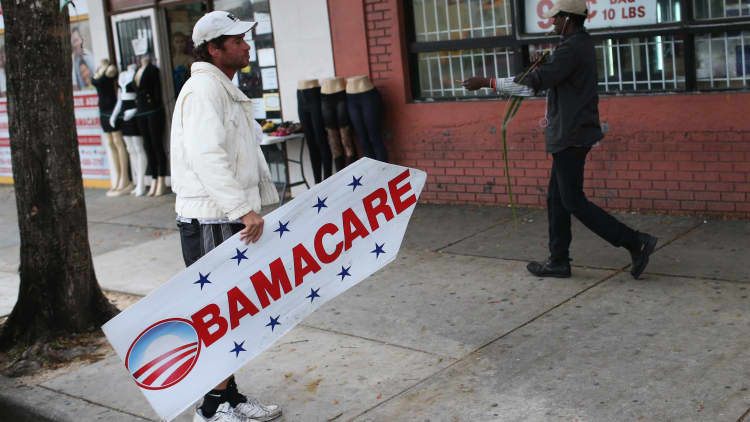Companies that provide dialysis have won a big victory as a federal judge suspended implementation of a last-minute Obama administration rule that would have forced the disclosure of financial aid given to patients.
That rule has been bitterly opposed by dialysis providers, who fear that insurance plans would use information about patients who got such aid to deny insurance coverage to them for dialysis procedures.
The rule would have required that insurers agree to accept third-party financial aid for their customers.
U.S. District Judge Amos Mazzant, in granting providers and dialysis advocates a temporary restraining order against the rule, said that the federal Health and Human Service Department's issuance of the rule had been "arbitrary and capricious."
Mazzant also said that the plaintiffs opposing the rule had a high likelihood of getting it permanently tossed out because there is good reason to believe HHS did not follow the proper procedure for giving the public notice and a chance to comment on the proposed rule.
"The Court determines that HHS did not have good cause to bypass notice and comment; thus, the Rule should be vacated," Mazzant wrote in his decision, issued in federal court in Texas.
The rule was announced in mid-December, and had been scheduled to take effect Jan. 14. An earlier Mazzant ruling postponed the implementation pending his consideration of a request for the temporary restraining order from the plaintiffs, which included the providers DaVita, Fresenius Medical Care and U.S. Renal Care, along with a dialysis patients organization.
The Justice Department, which is defending the rule, declined to comment.
DaVita said, "On behalf of our patients we are pleased that the court took the important step of putting a hold on a Centers for Medicare and Medicaid Services (CMS) rule that would have harmed thousands of the sickest patients in America." CMS is a division of HHS.
Hrant Jamgochian, chief executive of Dialysis Patient Citizens, a leading advocacy group for people with kidney disease and the lead plaintiff in the suit, said, "The court recognized the critical need to suspend enforcement of a harmful regulation that would give insurers illegal veto power over a patient's ability to receive charitable assistance that helps them afford health insurance."
"CMS hastily released the rule without recognizing its harmful impact on patients' ability to keep their current health plan," Jamgochian said.

The case stems from concerns raised by federal health regulators that some dialysis providers — by funding insurance premiums paid by patients — are steering people into private individual health plans when those patients are either getting or eligible for government-run Medicare and Medicaid insurance coverage.
Last summer, regulators warned that such steering could drive up health costs nationally, and hurt the bottom lines of insurers.
Private insurance plans, including those sold on Obamacare exchanges, pay higher reimbursement rates for dialysis treatment than Medicare and Medicaid.
After that warning, some insurers complained about dialysis providers giving patients financial aid, as they do via donations to the charities such as the American Kidney Fund.
DaVita, in a statement to CNBC, noted that the judge had found that the rule would have left "thousands of Medicare-ineligible [dialysis] patients without health insurance," and that the government "has long accepted the practice of charitable premium assistance."
DaVita said despite the judge's ruling, "the threat to dialysis patients by health insurance providers still exists."
"We ask the new administration and CMS to not only eliminate this rule, but to take action to prevent insurance companies from discriminating against a vulnerable group of patients and ensure continued access to charitable premium assistance that has served as an essential patient safety net for the last 20 years."



